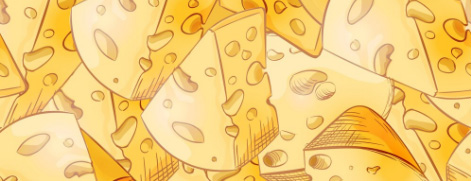10 Healthy, Tasty and Easy After-School Snacks for Kids
.jpg)
Children living in the USA, Europe, or the UK come from diverse religious and cultural backgrounds, each with its unique dietary practices. At school, they are exposed to various languages and learn about different cultures, while at home, they are immersed in their own religion, culture, and native language.
Given this diversity, we have listed 10 easy-to-make, healthy snacks that are suitable for multicultural kids, respecting a variety of dietary preferences and traditions:
1. Fruit Salad With Different Types of Cheeses
A mix of fresh, seasonal fruits like apples, mangoes, berries, and bananas. Add Havarti cheese cubes for extra calories and proteins. Universally loved, fruit salads can cater to a variety of tastes and are healthy too. If you can’t find Havarti, look for some of its substitutes here.
2. Veggie Sticks with Hummus
Carrot, cucumber, and bell pepper sticks served with hummus. Hummus pairs perfectly with fresh vegetables and is nutritious as well. If you find it difficult for your kids to enjoy hummus, give it a twist with a cooked mashed sweet potato.
3. Rice Cakes with Avocado
Rice cakes topped with mashed avocado and a sprinkle of salt or sesame seeds. Simple and nutritious, this snack combines flavors familiar in many Asian and Western cultures. Can’t find avocado? Give it a try with banana or papaya, both are extremely nutritious and full of vitamins, minerals and protein that will increase your kids’ energy levels, strengthen their bones and boost their brain power.
4. Yogurt with Honey and Nuts
Plain Greek yogurt drizzled with honey and topped with raw or dry roasted almonds or walnuts. This combination is rich in protein and healthy fats, antioxidants, and fiber. Nuts stimulate growth and development both physically and intellectually. If your child is under five, be careful with whole walnuts due to choking hazards. In that case, you can always ground them into a powder.
5. Whole Grain Crackers with Cheese or Nut Butter
Whole grain crackers topped with slices of cheese (American cheese / Cheddar / Swiss cheese) or a spread of peanut or almond butter on it. It is a good mix of protein and healthy fats.
6. Mini Veggie Wraps
Whole wheat tortillas filled with hummus or mayonnaise, sliced cucumber, carrot, tomatoes, and shredded lettuce. A simple snack that can be customized with a variety of fillings to suit various tastes. Or you can include shredded Mozzarella cheese instead of mayonnaise. It’s important to consume veggies from an early age, and tasting different types will increase your kids chances to get acquainted with a variation of flavours while getting healthy ingredients into their bodies.
7. Boiled Eggs with Veggies
Hard-boiled eggs served with sliced veggies like cherry tomatoes and cucumber. Eggs are protein-packed, and veggies add fiber and vitamins. Present them with this snack as an experience to learn: teach them how to peel a boiled egg, and then how to slice them with the adequate tool. They’ll enjoy being able to prepare their own snack or sandwich for themselves, and may even surprise you on your next Mom’s Day.
8. Smoothies
A quick and easy healthy drink, perfect as an alternative to sugary beverages. It can be made with fruits, yoghurt, milk, and dry fruits, customized to taste and based on what’s available at home. And it’s good for those kids who are a bit more lazy when it comes to eating.
9. Popcorn with Global Spices
Air-popped popcorn seasoned with spices like cumin, paprika, or nutritional yeast. Consider it fusion cuisine and adapt the seasonings to the flavours you usually cook at home.
10. Edamame (Steamed Soybeans)
Lightly steamed edamame with a sprinkle of sea salt. Edamame is high in protein and fiber, making it both healthy and satisfying.
These snacks are simple to prepare, highly nutritious, and reflect a variety of cultural influences, making them perfect for kids in several parts of the world. Food is a learning experience that can be taught from early childhood, keeping your own family background and your life style while also allowing your children to adapt to new environments.
Drop your thoughts in the comments and let us know if you gave any of these ideas a try—did your kids love them or not so much? We can't wait to hear from you!






Loading comments...